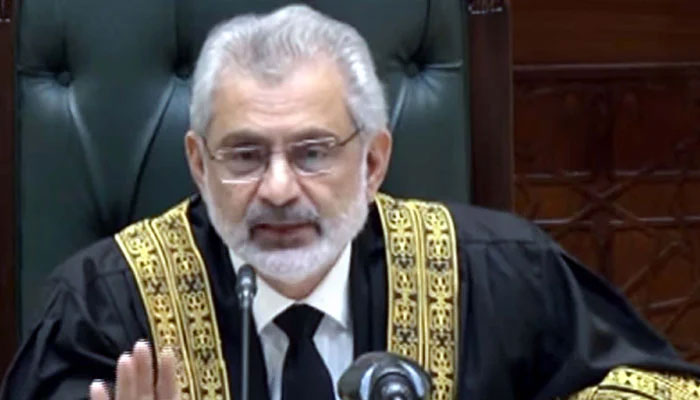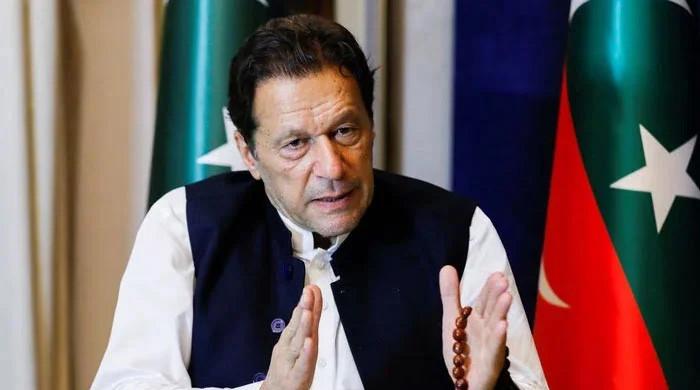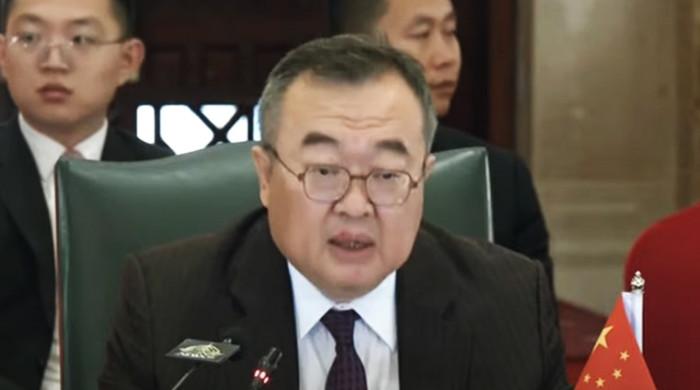CJP Isa terms ordinance an ‘insult’ to parliament – M Haris

ISLAMABAD: Chief Justice of Pakistan (CJP) Qazi Faez Isa on Thursday called the presidential ordinance an insult to the parliament.
“[Presidential] ordinance is an insult to the parliament when it has already made a law [on an issue],” the top judge said while hearing an Election Commission of Pakistan’s (ECP) plea against the constitution of election tribunals by the Lahore High Court.
The case is being heard by a two-member bench comprising the chief justice and Justice Justice Naeem Akhtar Afghan.
The ECP had moved the apex court under Article 185(3) of the Constitution against the LHC’s May 29 verdict wherein it had constituted eight election tribunals.
The order of the court’s single-member bench comprising LHC CJ Malik Shahzad Ahmad provisioned that Justice Shahid Karim, Justice Ch Muhammad Iqbal, Justice Anwaar Hussain, and Justice Sultan Tanvir Ahmad would hear the election petitions at the LHC principal seat in Lahore.
Whereas Justice Asim Hafeez will hear the election petitions at the LHC Bahawalpur bench, Justice Sardar Muhammad Sarfraz Dogar and Justice Raheel Kamran will hear the election petitions at the LHC Multan bench, and Justice Mirza Viqas Rauf will hear the election petitions at the LHC Rawalpindi bench.
The order, which came in response to petitions filed by Rao Hashim Omar Khan and others, had also ordered the ECP to appoint six more judges, nominated by the LHC chief justice, as election tribunals.
It is pertinent to mention here that two out of the eight election tribunals were already working in Punjab.
In response, the electoral body, in its appeal filed in the SC, sought leave to appeal against the impugned judgment of the LHC contending that under Article 219 read with Article 222(b) of the Constitution, the power to appoint the election tribunals was vested in the electoral body.
The ECP had further argued that Article 219 of the Constitution did not expressly require the body to consult the relevant high court’s chief justice for appointing election tribunals or for allocating territorial jurisdiction to such election tribunals.
Section 140(3) of the Elections Act 2017 only required consultation with the chief justice of the high court concerned on the appointment of sitting high court judges as election tribunals, but this consultation did not cover the allocation of territorial jurisdiction to the election tribunals which was the sole power and prerogative of the Election Commission, as was evident from Section 140(1) read with Section 151 of the Elections Act 2017, the petition stated.
More to follow…


